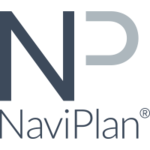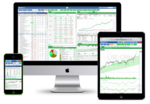Description

ActTrader

Ledgy
Comprehensive Overview: ActTrader vs Ledgy
Certainly! Let's delve into an overview of ActTrader and Ledgy, focusing on their primary functions, target markets, market presence, and differentiating factors.
ActTrader
a) Primary Functions and Target Markets
- Primary Functions: ActTrader is primarily a trading platform that offers a comprehensive suite for forex and CFD brokers. It provides tools for online trading, including dealing, risk management, and decision support. The platform is known for offering state-of-the-art charting tools, analytical tools, and a user-friendly interface that supports automated trading strategies through scripting capabilities.
- Target Markets: ActTrader mainly targets retail and institutional brokers in the financial industry, particularly those dealing with foreign exchange, contracts for difference (CFDs), and other derivative products. It caters to both retail traders and institutional clients like brokerage firms.
b) Market Share and User Base
- ActTrader has established a niche presence in the financial trading sector, especially with forex brokers who require tailored solutions for their clients. While it doesn't have the same level of market domination as platforms like MetaTrader (MT4/MT5), it maintains a loyal user base due to its customization abilities and robust institutional support.
c) Key Differentiating Factors
- Customization and Flexibility: One of ActTrader's major strengths is its flexibility. It allows brokers to customize the platform according to their specific needs, thereby providing a competitive edge for institutions looking to differentiate their offerings.
- Comprehensive Suite: ActTrader offers a full range of trading tools integrated within its platform, from advanced charting to automated trading modules, providing an all-in-one solution for brokers.
- Operability: The platform is designed to operate seamlessly across desktop and mobile interfaces, ensuring accessibility and operable functionality across different devices.
Ledgy
a) Primary Functions and Target Markets
- Primary Functions: Unlike ActTrader, Ledgy is a platform focused on equity management for startups and scale-ups. It helps companies manage their cap tables, employee stock options, and investor relations. The platform supports modeling scenarios, automating legal workflows, and maintaining transparency with stakeholders regarding equity distribution.
- Target Markets: Ledgy serves startups, scale-ups, and more recently, established companies that need sophisticated equity management solutions. It targets sectors driven by high-growth potential where equity strategies are critical to talent acquisition and investor relations, such as technology startups and venture capital-backed firms.
b) Market Share and User Base
- Ledgy operates within the niche of equity management platforms and competes with other solutions like Carta. Its user base primarily consists of European and international growth-stage startups seeking advanced, user-friendly equity management tools. While not the leader globally, it is gaining traction, particularly in Europe, due to its comprehensive feature set and intuitive interface.
c) Key Differentiating Factors
- Equity Management Focus: Unlike broader financial management platforms, Ledgy specializes in equity and cap table management, offering unique insights and governance tools tailored for startups.
- Scenario Planning: Ledgy provides robust scenario modeling features, which help companies forecast the impact of potential funding rounds and employee stock options on their equity structure.
- Compliance and Legal Support: Ledgy emphasizes legal compliance, automating document generation, and digitizing stakeholder communications in line with regional regulations.
- User Experience: Known for its user-friendly interface, the platform is particularly appealing to startups that require sophisticated tools without complex training.
Comparative Analysis
In terms of market share and user demographics, ActTrader and Ledgy serve very distinct markets with little overlap. ActTrader focuses on providing robust trading solutions for the financial services sector, maintaining a specialized presence in the brokerage and trading industry. In contrast, Ledgy’s relevance is more pronounced in the world of startups and growing enterprises seeking an edge with their equity management strategies. Both offer tailored solutions that remain competitive in their respective niches by focusing on specific functionality that meets the distinct needs of their target markets.
Contact Info

Year founded :
Not Available
Not Available
Not Available
Not Available
Not Available

Year founded :
2017
+41 44 585 21 23
Not Available
United Kingdom
http://www.linkedin.com/company/ledgy
Feature Similarity Breakdown: ActTrader, Ledgy
ActTrader and Ledgy cater to different aspects of financial management and investment, with ActTrader focusing on online trading platforms and Ledgy on equity and cap table management. Here’s a breakdown of their features:
a) Core Features in Common
-
Cloud-Based Platform:
- Both ActTrader and Ledgy offer cloud-based solutions, allowing users to access their services from anywhere with an internet connection.
-
Analytics and Reporting:
- Both platforms provide analytical tools and reporting functions to help users make informed decisions.
-
User Management:
- Each platform includes features for managing user access and permissions, suitable for collaborative environments.
b) Comparison of User Interfaces
-
ActTrader:
- Typically features a more complex interface tailored towards traders. It includes dashboards and real-time market data visuals. The interface might contain multiple charts, financial indicators, and trading tools designed for an in-depth trading experience. The UX is focused on efficiency and the needs of traders.
-
Ledgy:
- Has a cleaner, more straightforward interface focused on equity management and designed for clarity and ease of use by non-financial users. The interface usually adopts a modern look with intuitive navigation aimed at simplifying complex financial data for startup teams and equity-centric professionals.
Overall Comparison:
ActTrader’s UI can be quite data-intensive, focusing on dynamic trading views, whereas Ledgy’s UI is simpler, emphasizing accessibility to equity and cap table data. The key difference lies in the complexity and type of data displayed, with ActTrader focusing on trading and real-time data, and Ledgy focusing on equity management.
c) Unique Features
-
ActTrader:
- Trading Tools and Features: ActTrader includes tools such as automated trading systems, real-time quotes, hedging tools, and advanced charting features which are specific to trading environments.
- Multi-Asset Support: It typically supports multiple asset types, catering to traders with diverse portfolios.
-
Ledgy:
- Equity Management: Ledgy is tailored to managing equity plans, cap tables, and investor relations, offering features such as scenario modeling and employee participation plans.
- Legal and Compliance Tools: Tools for legal documentation, compliance, and tax reporting are key features that set Ledgy apart in assisting startups and growing companies.
- Employee Engagement: It offers modules to engage employees with their equity and potential future gains, a feature not generally necessary for trading platforms like ActTrader.
Ledgy tends to serve startups and businesses that require detailed equity tracking and management, while ActTrader serves trading professionals focused on market activities. Their unique features reflect their target user bases and the specific needs of their primary audiences.
Features

User-Friendly Platform
Secure Trading Environment
Advanced Trading Tools

Fundraising and Investor Relations
Equity Management
Compliance and Reporting
Best Fit Use Cases: ActTrader, Ledgy
ActTrader
a) For what types of businesses or projects is ActTrader the best choice?
ActTrader is an advantageous platform primarily designed for Forex trading, CFDs, and other derivative instruments. It is ideally suited for:
- Brokerage Firms: Small to medium-sized brokerage firms seeking a comprehensive trading platform that offers white-label solutions and robust trading technology.
- Financial Institutions: Institutions looking to enter or expand in the online trading market with custom branding and scalable solutions.
- Traders and Fund Managers: Those who require advanced trading tools, automated trading systems, and analytical capabilities.
- Startups in the FinTech Sector: New companies aiming to offer trading solutions without the overhead of building their own infrastructure.
d) How does ActTrader cater to different industry verticals or company sizes?
ActTrader caters to various industry needs by offering:
- Customization and Scalability: Solutions that can be scaled up as the business grows and tailored to specific business models.
- Regulatory Compliance: Features supporting compliance with financial regulations, which is crucial for financial services.
- User-Friendly Interface & Advanced Tools: Suitable for both novice and experienced traders, offering a range of tools from simple chart analysis to complex algorithmic strategies.
Ledgy
b) In what scenarios would Ledgy be the preferred option?
Ledgy is a specialized tool geared towards equity management, making it highly suitable in scenarios like:
- Startups and Growing Companies: Especially those that have issued or plan to issue employee stock options, as Ledgy simplifies equity management and cap tables.
- Venture Capital: VCs that need a clear view of portfolio companies’ equity data for better investment analysis.
- Enterprises Expanding Globally: Organizations that face complex equity management issues due to multi-country operations and need localized compliance features.
- Investors and Shareholders: Those needing straightforward, real-time insights into equity distribution and changes over time.
d) How does Ledgy cater to different industry verticals or company sizes?
Ledgy serves various needs across industries by providing:
- Scalability for Startups to Large Companies: Solutions that grow with the company, from seed stage to IPO.
- Compliance and Security: Equipped to handle regulatory requirements across different jurisdictions, providing legal templates and audit trails.
- Comprehensive Dashboards and Analytics: Allowing companies of all sizes to have clarity on complex equity structures and perform detailed analysis.
Both ActTrader and Ledgy offer specialized features that cater to specific needs within their respective domains: financial trading for ActTrader and equity management for Ledgy, with scalability and compliance across different business sizes and industries as key focuses.
Pricing

Pricing Not Available

Pricing Not Available
Metrics History
Metrics History
Comparing teamSize across companies
Conclusion & Final Verdict: ActTrader vs Ledgy
To provide a conclusion and final verdict for ActTrader and Ledgy, let's evaluate each product based on their key attributes, considering factors like pricing, features, usability, and target audience. It's important to keep in mind that both solutions cater to different needs, with ActTrader primarily in the trading platform domain and Ledgy in equity management and cap table management.
a) Best Overall Value
When determining the overall value, it's crucial to align the product's capabilities with the needs of the potential user.
-
ActTrader: Best for individuals or companies deeply involved in financial trading. It offers robust trading features, customizable interfaces, and comprehensive analytics tools. If trading fees, transaction speed, and technical analysis are pivotal, ActTrader provides substantial value.
-
Ledgy: Ideal for startups and businesses requiring sophisticated equity management solutions. It delivers extensive tools for cap table management, scenario modeling, and stakeholder engagement. For companies that need to manage equity efficiently and communicate effectively with stakeholders, Ledgy presents a strong value proposition.
Given this analysis, the best overall value depends heavily on the user's primary needs: financial trading capabilities versus equity management.
b) Pros and Cons
ActTrader:
-
Pros:
- Comprehensive trading tools and technical analysis.
- Highly customizable interface suited for professional traders.
- Strong real-time data and analytics capabilities.
-
Cons:
- Steep learning curve for beginners.
- Primarily focused on trading with less emphasis on other business aspects.
- May require significant system resources.
Ledgy:
-
Pros:
- Robust cap table management and equity planning.
- Facilitates clear communication with investors and employees about equity.
- Suitable for startups looking for transparency and efficiency in equity management.
-
Cons:
- Limited to equity management, not suitable for trading activities.
- May be over-featured for very small startups or sole proprietorships.
c) Recommendations for Users
-
For Traders and Financial Analysts: If your primary requirement is a sophisticated trading platform, ActTrader's extensive trading tools and data analysis capabilities make it the preferable choice. Ensure you have the resources and willingness to get familiarized with its advanced functionalities.
-
For Startups and Growth Companies: If managing cap tables, forecasting equity scenarios, and engaging stakeholders is your focus, Ledgy offers the necessary tools to simplify these processes. It is especially recommended for companies preparing for funding rounds or managing complex equity structures.
In conclusion, the decision between ActTrader and Ledgy should be driven by your core business needs—trading capabilities or equity management. Each platform excels in its respective domain, offering unique strengths suited to distinct business requirements.



